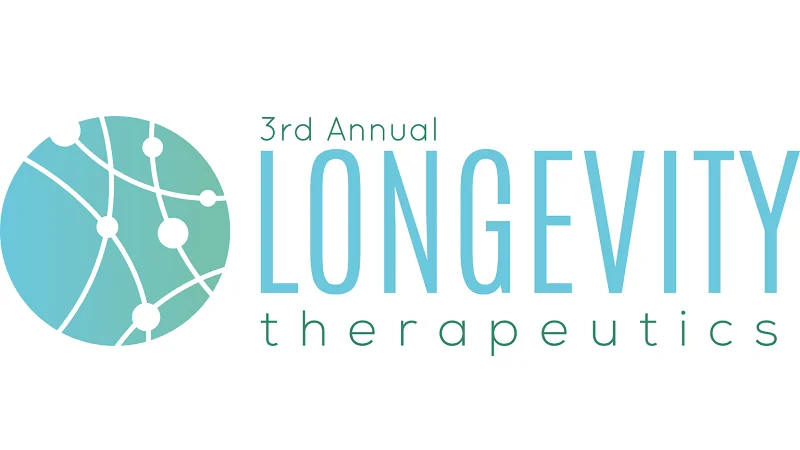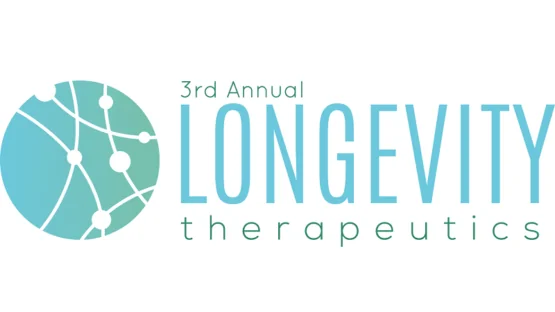This is the final installment in our coverage of Longevity Therapeutics 2021, a conference that brought together some of the biggest names in longevity research. Read the previous parts here, here, and here.
Dr. Andrei Gudkov – Chief Scientific Officer, Genome Protection
Andrei Gudkov gave a talk on what he and many others consider a major cause of aging: retrotransposons. These repetitive elements, which constitute more than half of our DNA, are the remains of ancient viruses piggybacking on our genes. Most of them are inactive: they only get copied along with the rest of our DNA during cell division. Tightly wound into heterochromatin, they became benign. However, sometimes a retrotransposon breaks free and proliferates by coding for the enzyme reverse transcriptase, which then causes more of the retrotransposon’s copies to be inserted elsewhere in the genome. According to Gudkov’s theory, this retrobiomic activity accelerates with age, hampering the ability of the affected cells to function and triggering an immune response, which results in inflammaging. Most but not all such cells undergo senescence, which is why removing only senescent cells does not solve the problem entirely. Research links the longevity of various mammalian species to their levels of retrobiome activity. If the theory is solid, aging can be considered, in part, a viral disease and may potentially respond to anti-viral treatments such as vaccination. Retrobiome activity also increases dramatically in cancer cells, boosting their mutation rate and helping them evade treatment.
Gudkov’s group has been making steady progress. In mouse experiments, cancer-prone animals treated with a reverse transcriptase inhibitor showed greatly increased survivability. In another study, mice that received a prototype of an anti-retrobiome vaccine demonstrated decreased frailty. This is an ongoing study, and Gudkov still does not have data on the survival rates of the mice. With his non-profit called Vaika, Gudkov also studies retrotransposons in dogs. Dogs exhibit especially high levels of retrobiome activity due to their morphological diversity, and inhibiting this activity can potentially lead to a meaningful increase in our precious companions’ lifespans. Check out this expansive interview that Dr. Gudkov gave us in 2018.
Dr. Lewis Gruber – Chief Executive & Scientific Officer, Siwa Therapeutics
Siwa Therapeutics, founded and led by Dr. Lewis Gruber, is a hot name in longevity research. In the MIT Technology Review article “10 Breakthrough Technologies of 2020”, the company was named a key player in the anti-aging field. Read our interview with Dr. Gruber from 2020.
Gruber’s presentation echoed Gudkov’s in that the longevity industry should look beyond targeting senescent cells, and Gruber and Gudkov both believe that their approaches can be used across a wide spectrum of age-related diseases.
Siwa has developed the monoclonal antibody 318H. It selectively targets the eponymous biomarker, which is abundant in cells exhibiting high levels of glycolysis and oxidative stress. The antibody tags dysfunctional cells for immune destruction, such as senescent and cancerous cells, other oxidatively stressed cells, and infected cells (including cells infected with SARS-CoV-2, the virus that causes COVID-19).
Gruber claims that 318H can be used against virtually all cancers. Siwa is currently focusing on “life-threatening diseases with unmet medical needs”, such as pancreatic cancer, to be eligible for FDA fast-tracking. In recent mouse trials, 318H drastically decreased senescent cell load, to a level lower than in young healthy controls. It also reduced metastasis in a murine model of triple-negative breast cancer. Siwa expects to file an IND (investigational new drug) application by the end of the year.
Dr. Thomas Hughes – President and CEO, Navitor Pharmaceuticals
Rapamycin is the first and most well-studied small molecule drug that can extend lifespan in animals. Years ago, it was hailed as a potential game changer in the longevity field. Unfortunately, since then, numerous studies have confirmed rapamycin’s toxicity, which severely restricts its use. As scientists have learned, rapamycin is toxic because it inhibits not only the harmful activity of mTORC1 (mechanical target of rapamycin complex 1) but also the beneficial activity of its sibling, mTORC2. This leads to immune suppression, deterioration of kidney function, and other deleterious effects.
Since 2016, Hughes and his team have been exploring ways to overcome this limitation. They have developed a new class of rapamycin analogs, the most promising of them being NV-20494. This compound can selectively engage mTORC1 without interfering with mTORC2.
Hughes’ team chose to target kidney diseases, and as many other companies have, Navitor had to devise a strategy to accelerate the introduction of their new drug. The company plans to target a rare genetic condition (polycystic kidney disease – PKD) first and, after receiving authorization, to expand to the more prevalent chronic kidney disease.
Multiple drivers, many of them age-related, increase mTORC1 activity in the kidneys of PKD patients, including high levels of glucose, lipids, and insulin along with hypertension and lack of exercise. The disease causes renal fibrosis, formation of cysts, and gradual loss of kidney function.
Navitor has yet to enter Stage 1 trials, which are expected to begin later this year, but the preliminary results look promising. In pre-clinical trials, NV-20494 reduced cyst volume in vivo in mouse cells and in vitro in human 3D cell culture, normalized gene expression, and drove down fibrosis and inflammation markers in the kidney. According to Hughes, this is just the beginning. If Navitor can deliver on its promise, we might witness a second rapamycin boom.
Samuel Agus, M.D. – Chief Medical Officer, Biophytis
Biophytis is a company that originated in Sorbonne University. It is headquartered in Paris and is developing plant-derived anti-aging compounds. Its lead candidate drug, BIO101, normalizes angiotensin production, which can help reduce hypertension, inflammation, and fibrosis. The drug is currently being tested against sarcopenia in a Stage 2 clinical trial to target ACE2 (angiotensin-converting enzyme 2) by facilitating the conversion of harmful angiotensin-8 to beneficial angiotensin 1-7. ACE2 is also the receptor that SARS-CoV-2, which causes COVID-19, uses to invade cells, which is why BIO101 is currently undergoing trials in patients with severe respiratory symptoms.
However, the focus of Agus’s talk was on various issues specific to clinical trials in the longevity field. For starters, most age-related diseases tend to advance slowly, so trials may take too long for the attention span of pharmaceutical companies, let alone venture capitalists. There is also a question of when to intervene. Researchers prefer to intervene early to have the most impact, but at this stage, the scarcity of symptoms can complicate matters.
Choosing participants can be a daunting task as well. Researchers must strike a balance between stricter and looser criteria, choosing people who are more likely to respond to treatment without making trials too specific. An elderly population presents additional challenges. First, changes in the participants’ conditions are unavoidable, especially in long-haul studies: older participants usually have additional medical problems that can lead to deterioration. Such changes can also be beneficial, if a participant becomes physically active, switches to a healthier diet, or starts receiving a new treatment, but they still muddy the waters for researchers. Second, over long periods of time, the very criteria of the disease can change, jeopardizing the study’s relevance and perspectives.
If you would like to know more, cou can read about the other days below:




